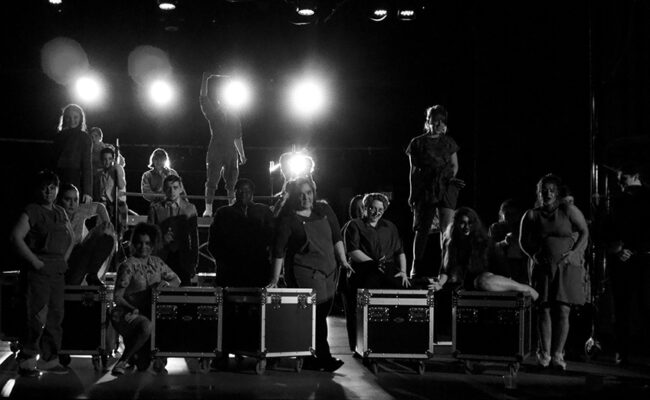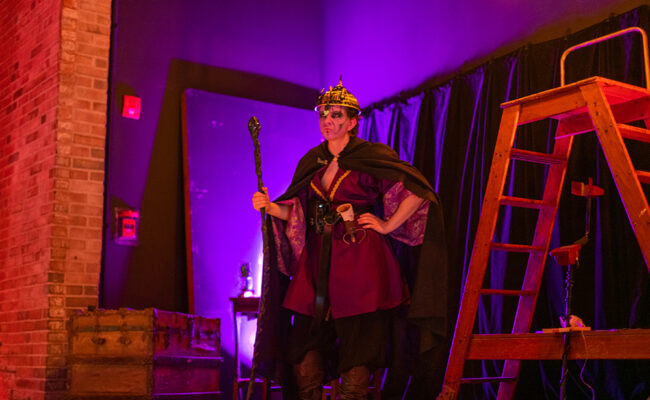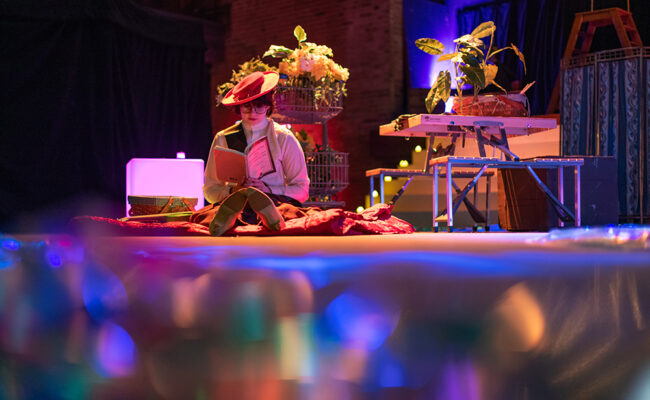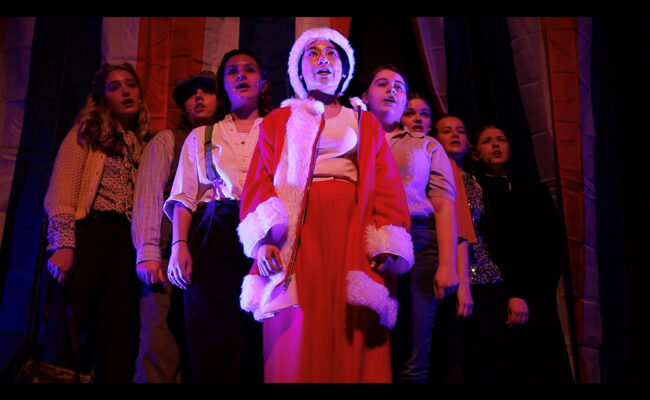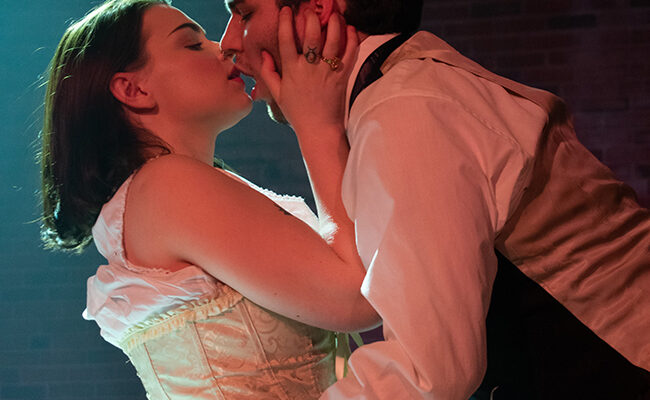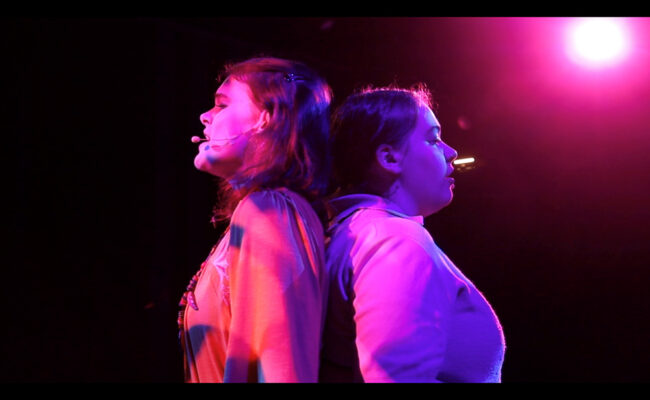In theatre, many moving pieces need to come together for a successful show. With that in mind, we offer an intensive study in six different focus areas — acting, directing, technical theatre, playwriting, dance, and dramaturgy — to enable you to pull back the curtain and explore the various dimensions of theatre arts.
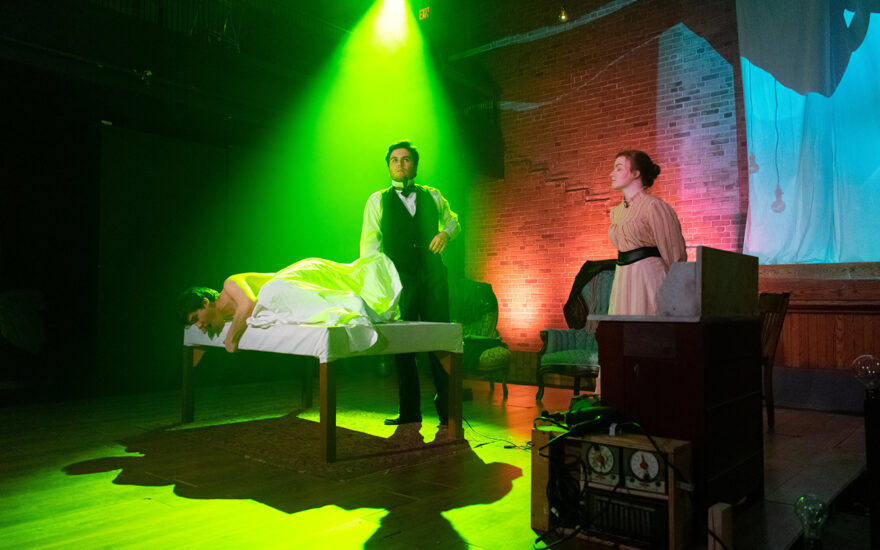
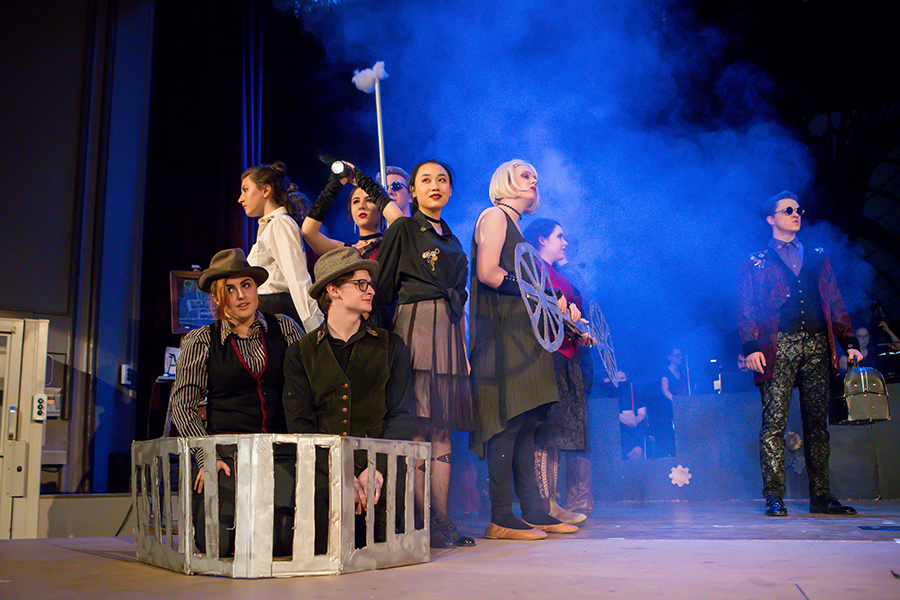
Why Study theatre arts at Clark?
- Join a theatre arts program that the Princeton Review has ranked among the top 20 in the nation.
- Perform and participate in Clark’s many theatre groups, award-winning improvisation troupes, and school productions.
- Collaborate with student directors, producers, set designers, actors, costumers, and other theatre arts majors to create productions for Clark’s New Play Festival, a biennial event where student playwrights stage their work at Clark’s Michelson Theatre.
- Apply
- Request Info
Are you ready to take the first step?
Featured Courses
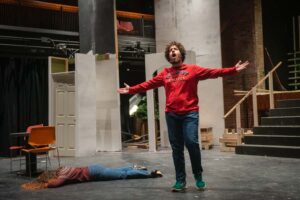
Stage Combat
In this course, you’ll (safely) explore the role of violent action in theatre, and learn the vocabulary, processes and techniques of combative movement, including hand-to-hand basics, positions and reactions.

Actor as Thinker
Investigate a conceptual approach to acting theory and its application while gaining a greater understanding of script analysis, characterization and style, as well as the relationship between actor and audience.
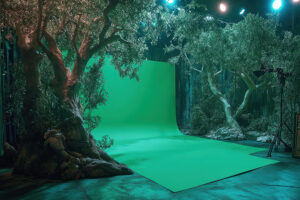
The Physical Theater/ Environmental Studio
Explore how physical and digital technologies can influence theatre design and direction, and try your hand at creating interactive fiction, escape rooms, virtual reality experiences, and audience-immersive theatre.
Clark’s theatre arts major offers courses in performance, production, history, and criticism. Whether your goal is to pursue a professional career in theatre or simply to gain a greater understanding of the play or the performance process, Clark faculty will work with you to design a program that fits your interests and goals, and to incorporate complementary internships or study away/abroad options.
The major consists of 13 courses: five core courses (required of all majors), five specialty courses (focusing on your area of interest), and three related courses chosen to complement your professional program. You can specialize in acting, directing, technical theatre, dramatic criticism and playwriting, or design your own area of focus. Related Visual & Performing Arts Department courses are to be chosen in consultation with your adviser.
At Clark you’ll get more than a great education; you’ll also be prepared for a long, productive career and life of consequence. And once you’ve completed your degree, you can join other Clark alumni who have gone on to work for great organizations and attend some of the best graduate schools in the world. The following communities may be of interest:
Arts, Media, Design, and Communications
Business, Marketing, and Entrepreneurship
Founders, Directors
Company One Theatre, Boston, Mass.
Founder, Artistic Director
Custom Made Theatre Company, San Francisco, Calif.
“Top Chef” Host
BRAVO Television
Freelance Director and Marketing Assistant
Primary Stages Theater, N.Y.
Teacher
Ramaz School, New York, N.Y.
The Clark Experience
The Clark Experience brings together the exceptional education you’ll receive in the classroom and so much more. Through focus and flexibility, it ensures you’ll leave Clark with the creativity, confidence, and resilience to succeed and lead a life of meaning and consequence.
Frequently Asked Questions
What can I do with a major in theatre arts?
At Clark you’ll get more than a great education; you’ll also be prepared for a long, productive career and life of consequence. And once you’ve completed your degree, you can join other Clark alumni who have gone on to work for great organizations and attend some of the best graduate schools in the world.
What skills will I learn?
- Acting students will develop an understanding of script analysis, characterization, style, and the relationship of the actor to the audience
- You will learn to interpret and critique plays from different points of view and reference, including those of the playwright, actor, director, historian, and dramaturge
- You will be introduced to the techniques and organization involved in providing the stage with scenery, lights, and properties, including drafting, scaled ground plans, elements of design, and styles of production. Makeup, lighting, and set construction are hands-on in applied lab/crew assignments.
What facilities are available?
The bustling Little Center is home to Clark’s theatre arts program. In addition to rehearsal and performance spaces, it houses:
- The Michelson Theater — a 120-seat black box theater used for all V&PA theater productions
- The Experimental Theater — a 30-seat theater used for student productions and student groups, as well as for “read-throughs” of student-written plays
- Costume-design shop
- Set-building workshop
Can I earn an academic achievement award in theater arts?
Patricia M. Plamondon Undergraduate Award in Visual and Performing Arts
The Patricia M. Plamondon Award is given to juniors and seniors who have demonstrated their talent in and commitment to the arts and for whom the award will serve to enhance their studies, research, or project-related travel. The award is made annually by a vote of the full-time faculty of the Department of Visual and Performing Arts.
Is there a theater honors program?
During your junior year, you might be accepted into the theatre arts honors program. Joining the program means you’ll work closely with a professor to create a project on a topic of your choice. This can take the form of writing a play, performing a role, etc., with an emphasis on attaining a professional standard of work. The thesis must be performed and/or presented as a senior.
Theatre Arts at Clark
Be a force for change.
Come study at a small research university with a strong liberal arts core.


